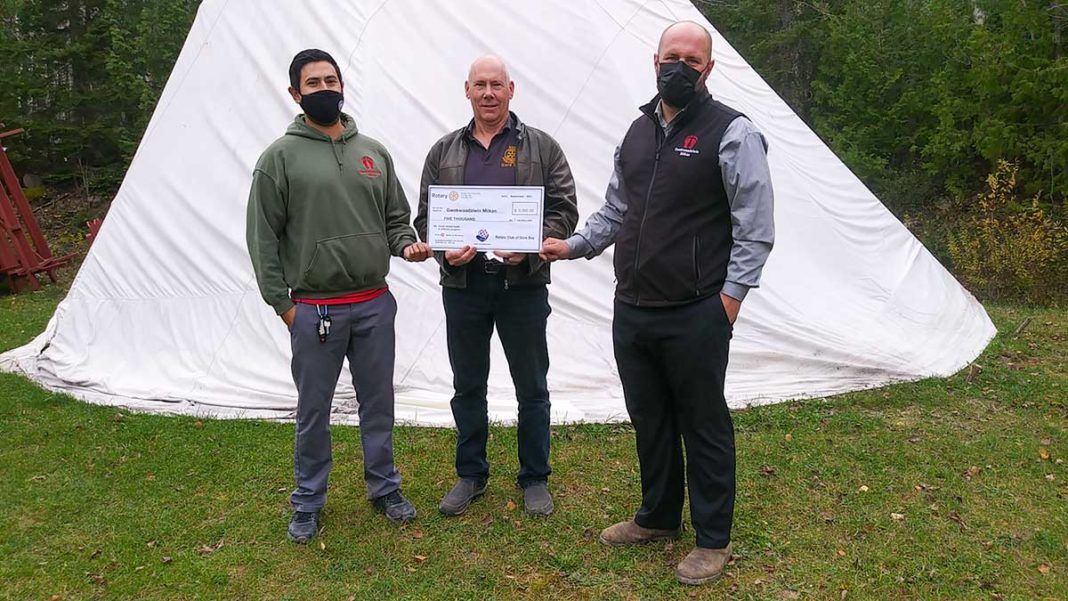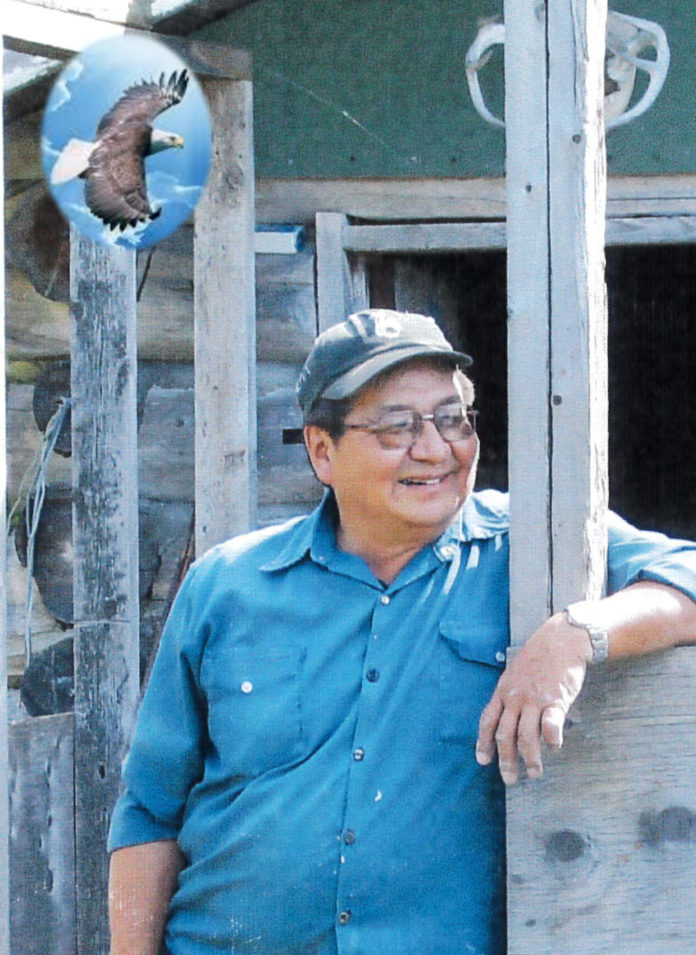by Tom Sasvari and Lori Thompson
GORE BAY – The Gore Bay Rotary Club’s 2021 Bay to Bay Century (100 mile) ride held in August attracted 75 participants, including families, children and off-Island riders. Proceeds from registration fees were shared between two worthy causes, the Gore Bay Medical Centre and Gwekwaadziwin Miikan’s youth mental health and addiction program.
Riders chose one of three different routes for the event, with all routes starting and ending at Fish Point Park, located at the marina in Gore Bay. At a post-ride barbecue, Rotary District Governor Steve Meadley stated, “the Rotary Club of Gore Bay punched way above their weight in putting on this type of event. What they have done for the community of Gore Bay and area now and in the past is absolutely amazing!”
The Gore Bay Rotary Club has donated to the Manitoulin Health Centre, Haven House and other Island organizations in previous years. Everybody knows everybody and families watch out for each other on Manitoulin, said Rotarian Keith McKeen. “We’re fortunate we have communities like this and that’s what the Rotary wants to promote. We’re just a bunch of people who want to help society,” he told Gwekwaadziwin Miikan (GWEK) staff as he presented a cheque for $5,000 to Sam Gilchrist, GWEK’s executive director, on Friday, October 29.
“Partner initiatives are so important to us as an aspect of those community relations,” said Mr. Gilchrist. “We do a lot of work province-wide and we work diligently to get our name out there but sometimes, it’s just about getting our neighbours to know us too. I think as an act of reconciliation, it’s important for local organizations to connect with us too. This is hugely valuable. We have a lot of different projects on the horizon and these different connections and fundraising opportunities are really going to allow us to bring them to fruition so we’re very grateful for it.”
The $5,000 donation will likely go towards the community aftercare project currently underway. “Aftercare is a very valuable aspect of treatment,” noted Mr. Gilchrist. “We have our treatment program and people thrive in it but it’s also about when people go back into the community, what are they going to do? Building upon those aspects is very important for our future.”
GWEK’s graduation rate remains higher than the provincial average, even after switching to a closed cohort model during COVID-19 and beginning a pilot project for those aged 30 years-plus this year. There are other metrics used to measure success as well. “More than half our participants come in with suicidal ideations or some level of self-harm,” Mr. Gilchrist said. “Three months post-treatment, that went from over 50 percent to zero percent.”
GWEK also looks at emotional health, physical health, and mental and spiritual health of participants. “With all three of those metrics, we saw a stark increase over our treatment as well as post-treatment,” he added.
The essence of GWEK’s program success lies in creating a community of supported individuals as they come through, explained Matt Maracle, GWEK’s director of operations. “It’s about creating support and success that’s sustainable beyond the program and it does take a community to maintain that,” he said. “I think it’s important to maintain these community partnerships and to challenge ourselves to continue growing and supporting ourselves within the Manitoulin community and of course, province and nation-wide with the ultimate goal of healing. Chi Miigwech for thinking of us.”
Community is important, agreed Mr. McKeen, as is increasing awareness about what programs are available here on Manitoulin and how they can help communities. “This year’s ride was a big success,” he said. “We had nice weather and lots of riders. We’re going to do it again next year and we’ll find another part of the Island that needs help.”





